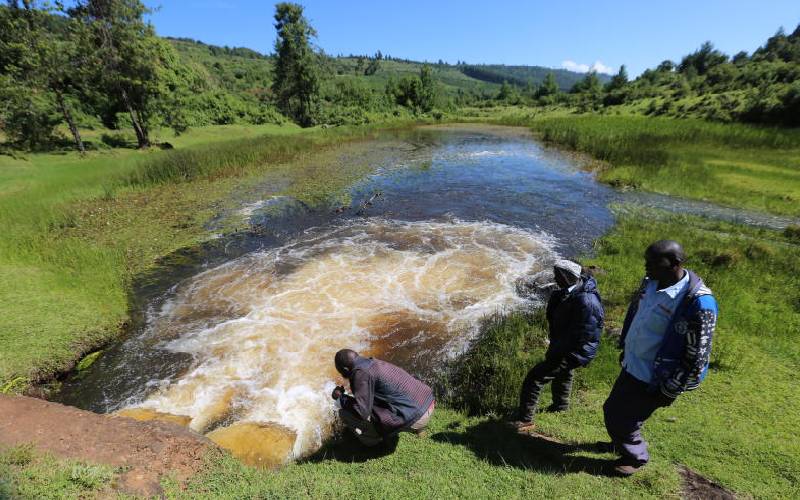×
The Standard e-Paper
Join Thousands Daily

Residents of HZ area at the Kimwarer dam, Keiyo South Constituency in Elgeyo Marakwet County. [File, Standard]
A story is told of the bent woman. The lady was so bent that she was literally seeing the world upside down.